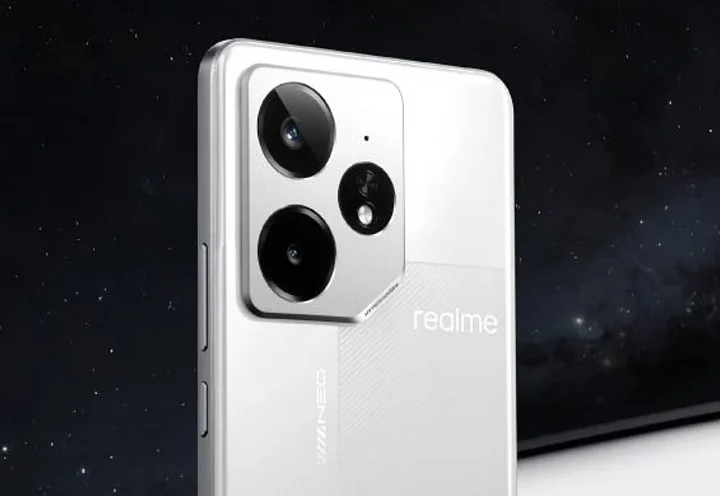Realme is set to launch the Realme Neo 7 in China next week on 11 December. Ahead of the official unveiling, the company has released official images of the device, revealing its design and color options. The Realme Neo 7 will succeed the Realme GT Neo 6 and is expected to feature a MediaTek Dimensity 9300+ chipset, a 7,000mAh battery, and a dual rear camera setup.
The official renders showcase the Realme Neo 7 in a Starship Edition color variant, featuring a textured back panel and a redesigned camera bump compared to previous GT Neo series phones. The camera setup includes two sensors and an LED flash, with Realme confirming that the device will utilize its Hyperimage+ photography architecture with AI imaging algorithms. The phone is expected to feature a 50-megapixel main camera and an 8-megapixel secondary sensor.
The Realme Neo 7 will be powered by a MediaTek Dimensity 9300+ chipset, paired with a 7,700mm square VC liquid cooling system and a 7,000mAh battery. The device is expected to feature a 6.78-inch AMOLED display with 1,264 x 2,780 pixel resolution and come in various RAM and storage configurations, including 6GB, 8GB, 12GB, and 16GB RAM options, along with 128GB, 256GB, 512GB, and 1TB storage options.
Realme Neo 7: Launch Date and Availability
The Realme Neo 7 is slated to launch in China at 4 pm local time (2:30 am IST) on 11 December and is currently available for pre-booking in the country through Realme's official website and e-commerce platforms.
Realme Neo 7 Price
The expected price of Realme Neo 7 is CNY 2,499 (roughly Rs. 29,100).
Realme Neo 7: Features and Specifications (Expected)
A 6.78-inch AMOLED display.
6GB, 8GB, 12GB, and 16GB RAM options and 128GB, 256GB, 512GB, and 1TB storage options.
Dual rear camera system, including 50 MP main camera and 8 MP secondary sensor.
Powered by MediaTek Dimensity 9300+ chipset (confirmed).
A 7,000mAh battery (confirmed).
(Disclaimer: Parts of this article were generated by AI and published after the content was editorially modified and verified by a human based on their own judgement and expertise. The Quint does not publish AI-generated content without direct human involvement and oversight).
